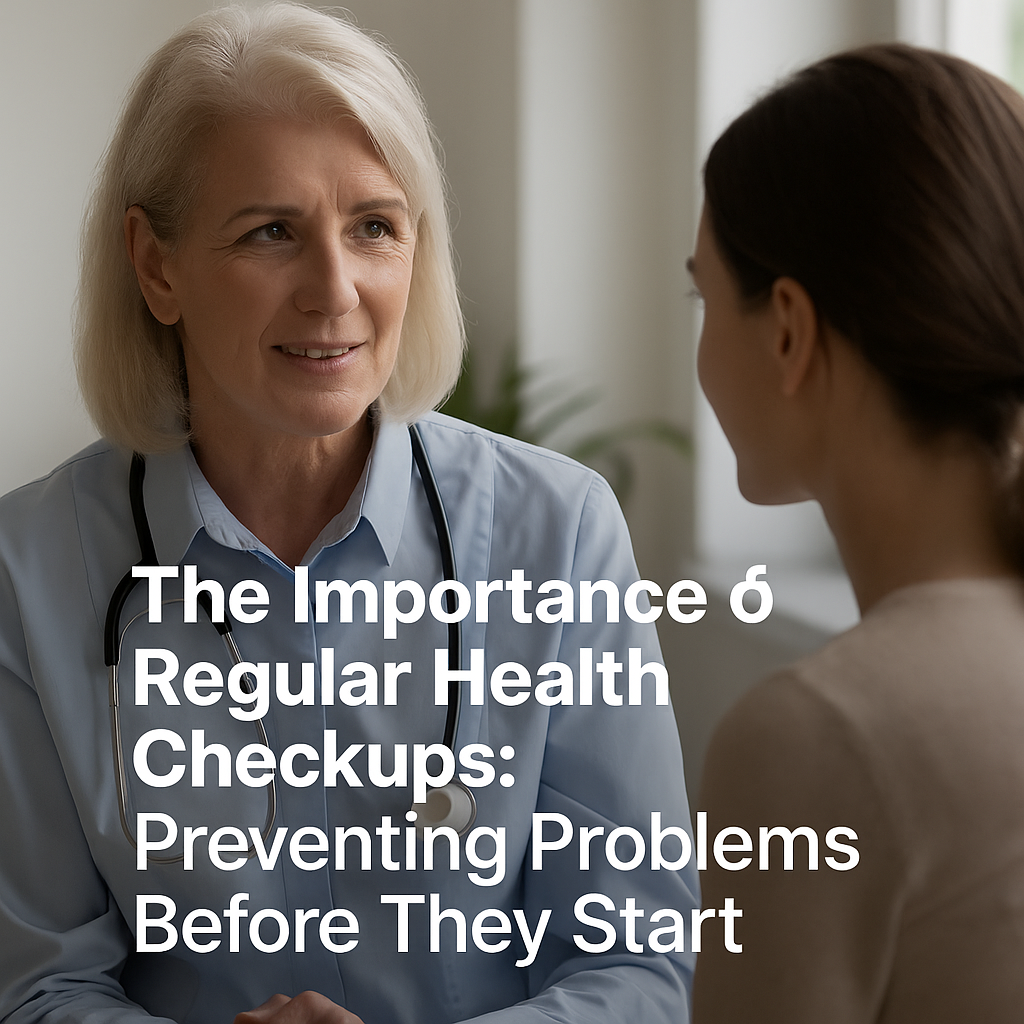
Regular health checkups are one of the simplest yet most effective ways to maintain long-term health. In today’s fast-paced world, people often ignore preventive care, focusing only on medical treatment when symptoms appear. However, routine checkups can help identify potential health issues early, often before they develop into serious problems.
Why Regular Checkups Matter
Prevention is always better than cure. Regular screenings allow doctors to detect diseases such as diabetes, hypertension, heart problems, and cancer at an early stage. Early detection not only improves treatment outcomes but also lowers healthcare costs in the long run.
Key Benefits of Health Checkups
- Early Diagnosis: Detecting diseases in the initial phase makes treatment more effective.
- Prevention: Doctors can advise lifestyle changes that prevent illness altogether.
- Monitoring: For patients with existing conditions, regular checkups help track progress.
- Peace of Mind: Knowing your health status reduces anxiety and motivates a healthier lifestyle.
What to Expect in a Health Checkup
A typical checkup may include blood tests, cholesterol screening, blood pressure monitoring, BMI (Body Mass Index) measurement, and other tests depending on your age and medical history. For women, gynecological exams and mammograms may be recommended, while men may need prostate health screenings.
How Often Should You Have a Checkup?
- Adults under 40: Every 2–3 years if healthy.
- Adults 40 and older: Every year or as recommended by a physician.
- Individuals with chronic conditions: As frequently as the doctor suggests.
The Role of Lifestyle
Checkups are only one side of the coin. A balanced diet, regular exercise, stress management, and avoiding harmful habits like smoking are equally important. Combining preventive checkups with a healthy lifestyle ensures long-term well-being.
Conclusion
Investing a few hours a year in preventive care can save years of treatment, stress, and financial strain. Regular health checkups are not just about diagnosing disease—they are about building a healthier future.
Leave a Reply